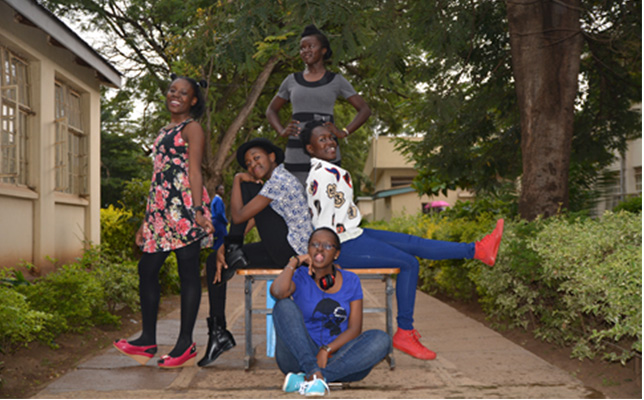11,000 Girls Compete in International Mobile App Challenge

A team of girls from Kisumu, Kenya created a mobile app called iCut, which helps report and fight female genital mutilation. The team named itself Restorers, and will compete Aug. 7-11 in the Technovation World Pitch Summit.
Girls from all over the United States and the world are competing in the Technovation Challenge, a global effort by STEM education nonprofit Iridescent, which has invited girls ages 10-18 to learn and apply technology to try to solve problems in their communities.
This year, 11,000 girls from around the world worked in teams of one to five to build mobile applications and address the United Nations Sustainable Development Goals (SDG), which are internationally agreed upon objectives. In conjunction with U.N. Women, their projects were required to address at least one issue within the SDG focus areas: quality education, poverty elimination, good health and well-being, climate action, peace and justice or gender equality.
More than 2,000 mentors supported the app-building teams, including 85 Google Made with Code volunteers. In addition to learning about tech, the girls used professional-style business planning to launch these apps.
Twelve teams of finalists will be flown to Silicon Valley, Aug. 7-11, where they will pitch their ideas for seed funding and scholarships. The effort is sponsored by Google’s Made with Code, a project launched in June 2014 to inspire teen girls around the world to take their first steps in code and to see it as a vehicle to pursue their aspirations.
"Some of these girls have overcome all sorts of obstacles — walking many miles to access computers and internet, navigating high language, infrastructural and cultural barriers to go through an English curriculum and programming interface — and when there is no support, still finding a way to persevere, learn, lead and making their world better," said Tara Chklovski, founder and CEO of Iridescent, in a statement. "Our aim, besides the competition, is really to have the girls focus on what they're learning in the program — the entrepreneurship, the coding and teamwork. But at the end, it's even beyond those skills — it's about honing their ability and tenacity to solve problems, perseverance and creativity."
The finalists teams will compete at the World Pitch Summit, hosted by Google, at Google’s headquarters in Mountain View, CA. Between Aug. 7 and 11, they’ll have the opportunity to meet each other, pitch their ideas and visit tech companies. The Technovation program is also sponsored by companies such as Adobe and Salesforce.
The 12 teams are divided into senior division and junior division finalists. The senior division finalists come from Karbi, Armenia; Almaty, Kazakhstan; Kisumu, Kenya; Noida, India; and Bengaluru, India.
The junior division finalists come from Chennai, India; Vancouver, Canada; California; Jordan, Hong Kong; and Phnom Penh, Cambodia.
Currently in its eighth year, Technovation “has worked with more than 15,000 girls around the world to develop mobile apps and startups to solve problems around a diverse range of issues, including food safety, nutrition,” poverty and more, according to a news release. After participating in Technovation, 60 percent of girls from the United States enroll in further computer science (CS) courses, with 30 percent majoring in CS in college, which is 65 times the national rate for U.S. female college students, according to the release. Internationally, 70 percent of the girls are interested in pursuing further technology related programs, the release said.
Some examples of apps created by the girls this year include iCut, an Android app that helps report and fight female genital mutilation; and an Ability app that helps connect disabled Palestinians in the Gaza Strip with the resources they need, such as mental health care.
Winning teams will receive a total of $145,000 in awards, including scholarships, the release said.
To learn about the Technovation 2016 finalist experience, watch the video below:
For more information on Technovation and Iridescent, visit the Iridescent website.
About the Author
Richard Chang is associate editor of THE Journal. He can be reached at [email protected].